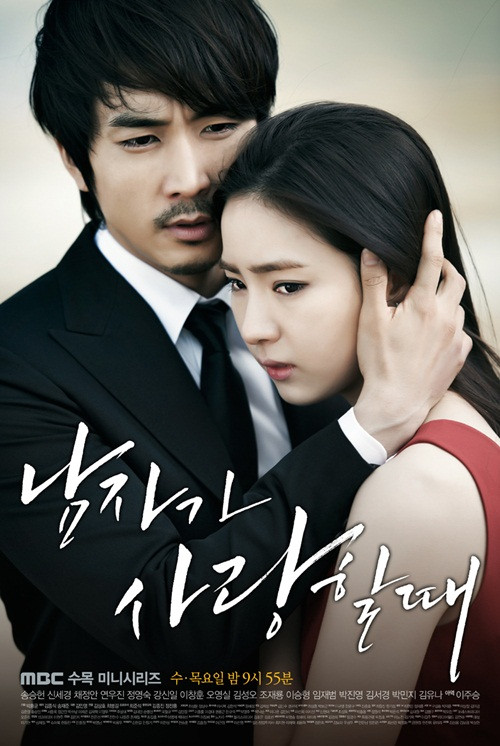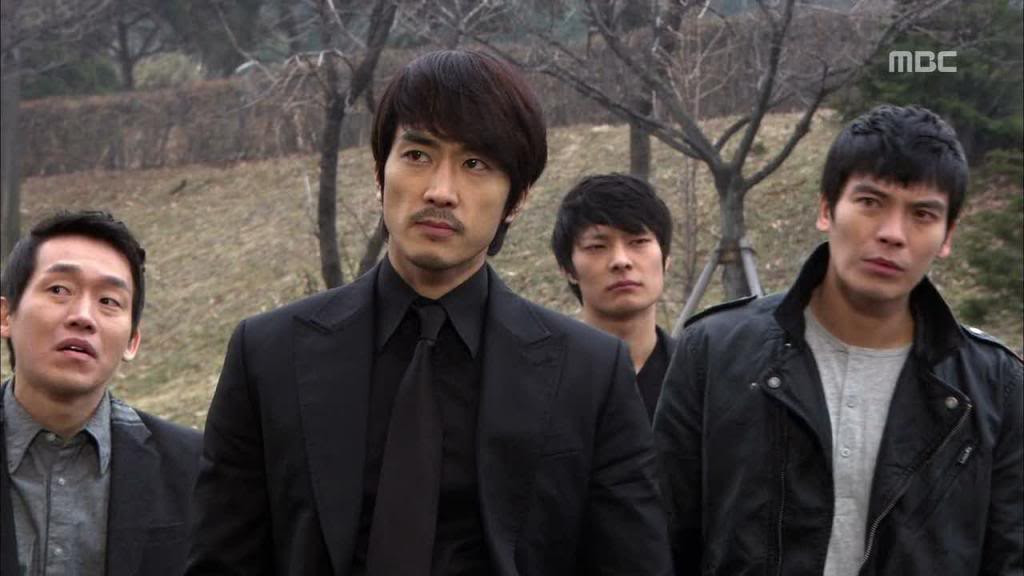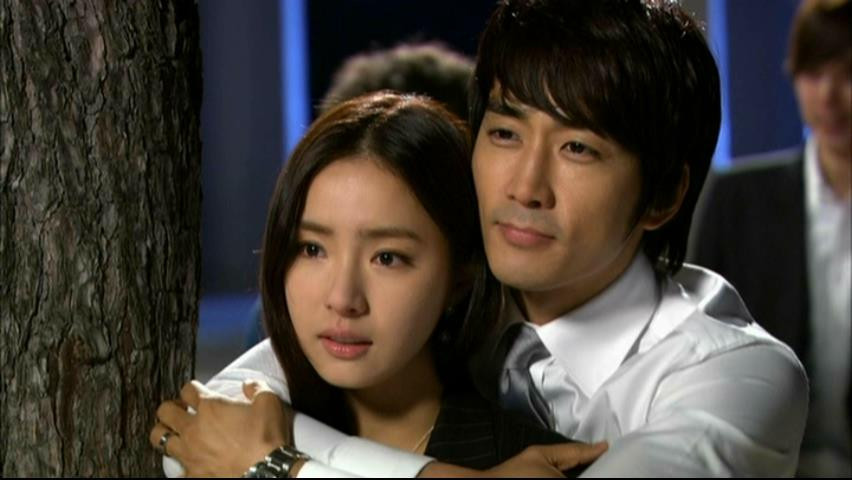The captivating world of Korean dramas (K-dramas) has swept across the globe, leaving a trail of devoted fans in its wake. But what happens when a man loves Korean series? This article explores the allure of K-dramas, focusing on the popular series “When a Man Loves,” and delves into the reasons behind its magnetic pull on male viewers.
The Allure of “When a Man Loves”
“When a Man Loves” is a complex melodrama that transcends the typical love triangle trope. The story revolves around a reformed gangster, Han Tae-sang (Song Seung-heon), who falls for Seo Mi-do (Shin Se-kyung), the daughter of a man he once terrorized. Years later, their paths cross again, and Tae-sang, now a successful businessman, attempts to win Mi-do’s heart. However, Mi-do encounters Lee Jae-hee (Yeon Woo-jin), a young man her own age, sparking a complicated web of relationships and loyalties.
 The main characters of "When a Man Loves"
The main characters of "When a Man Loves"
The series captivated audiences with its nuanced characters, intricate plot, and exploration of themes like love, loyalty, redemption, and the lasting impact of past decisions. Song Seung-heon’s portrayal of the complex and brooding Tae-sang, a man torn between his past and his desire for a different future, resonated with many viewers.
Why Men Fall for “When a Man Loves” and Other K-Dramas
While K-dramas are often associated with a female audience, “When a Man Loves” demonstrates their appeal to men as well. Several factors contribute to this attraction:
Compelling Storytelling:
K-dramas often feature intricate plots, unexpected twists, and well-developed characters that defy simple categorization. “When a Man Loves” exemplifies this with its morally ambiguous characters and exploration of the gray areas of human nature. The fast-paced narrative and high emotional stakes keep viewers engaged from beginning to end.
 A scene depicting the complex relationship between the characters
A scene depicting the complex relationship between the characters
Strong Male Characters:
While romance is a central theme in many K-dramas, “When a Man Loves” showcases powerful and multifaceted male characters grappling with internal conflicts and external pressures. Tae-sang’s journey from ruthless gangster to successful businessman striving for redemption offers a compelling character arc. The supporting male characters, including the loyal and volatile Chang-hee (Kim Sung-oh), add further depth to the narrative.
 The gangsters in "When a Man Loves"
The gangsters in "When a Man Loves"
Exploration of Universal Themes:
K-dramas often delve into universal themes of love, loss, family, ambition, and societal pressures, resonating with viewers across cultural boundaries. “When a Man Loves” tackles these themes through the lens of its characters’ complex relationships and struggles, making it relatable to a broader audience, including men.
High Production Value:
K-dramas are known for their high production value, featuring stunning cinematography, beautiful locations, and stylish fashion. This visual appeal enhances the viewing experience and contributes to the overall immersion in the story.
 A romantic scene from "When a Man Loves"
A romantic scene from "When a Man Loves"
Beyond “When a Man Loves”: The Broader Appeal of K-Dramas
The appeal of K-dramas extends beyond a single series. Genres like action, thriller, historical, and fantasy offer diverse storylines and characters that cater to a wide range of interests, including those of male viewers. The strong emphasis on brotherhood, loyalty, and overcoming adversity often found in these genres resonates with male audiences.
Conclusion
“When a Man Loves” showcases the compelling power of K-dramas to attract a diverse audience, including men. The series’ intricate plot, complex characters, and exploration of universal themes contribute to its enduring popularity. As the global K-drama phenomenon continues to grow, more men are discovering the captivating world of Korean series, proving that the love for K-dramas transcends gender boundaries.
